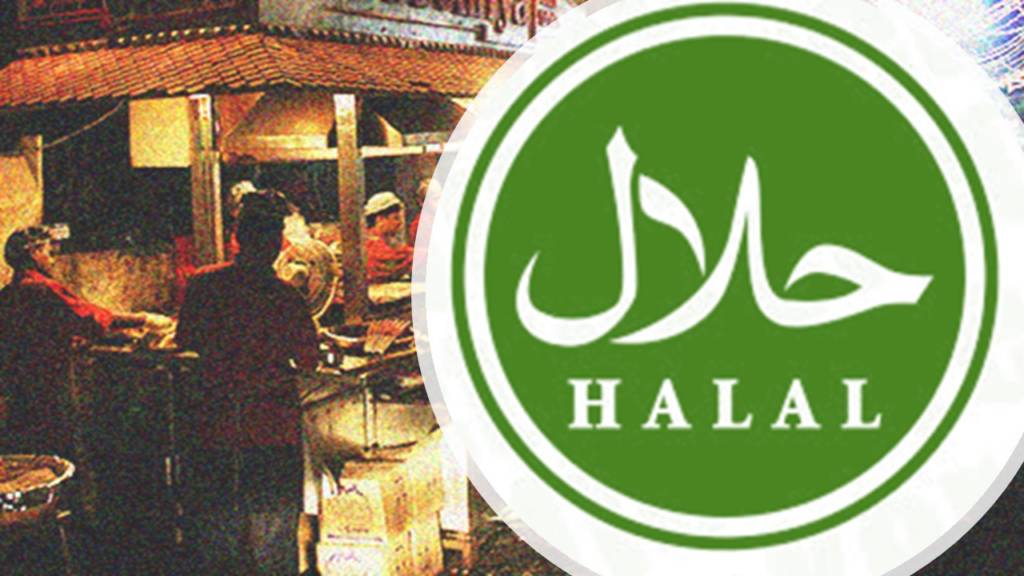[ THIS ARTICLE DESCRIBES SLAUGHTER PROCESS IN DETAIL. IT CAN BE UPSETTING FOR SOME. AUDIENCE DISCRETION IS STRICTLY RECOMMENDED]
The recent controversy surrounding multinational fast food giant McDonalds and its claim of serving only halal meat to consumers has again brought the debate around ritualistic slaughter especially Halal meat to the centre. Many over social media have claimed the dhabīḥah or zabiha or the prescribed method of Islamic ritual slaughter to be firstly inherently exclusionary and secondly to be causing unnecessary pain to animals.
According to the prescribed Islamic method, the butcher is required to call the name of God (Bismillah) before slaughter of each halal animal separately and it should consist of a swift, deep incision with a very sharp knife on the throat, cutting the wind pipe, jugular veins and carotid arteries of both sides but leaving the spinal cord intact, then the animal is left till the blood drains out ultimately killing the animal. Additionally the slaughter and other processing can only be performed by a Muslim. Halal can refer to anything being ‘permissible’ according to Islamic law and rituals but is majorly used to describe meat products.
While the constitution of India allows complete freedom with respect to dietary choices, some factors are still essential to be weighed in while keeping theses dietary choices coherent with other existing laws relating to Animal rights and laws against discrimination. The halal industry by contrast imposes religious restrictions, by mandating involvement of only Muslims in production and processing of products ultimately excluding other communities to reap the benefit of an industry which is poised to hit 1630 million USD by 2024.
Article 15 of the Indian Constitution secures the citizens from every sort of discrimination on the grounds of religion, race, caste, sex or place of birth or any of them hence any economic activity which institutionally discriminates on the basis of religion is surely a violation of rights of an individual as prescribed by the Constitution.
Some sections of the SC/ST community of India have traditionally been associated with the profession of butchery and Halal industry has taken away their only source of livelihood from them. It is not just immoral but appears illegal prima-facie.
Section 3(1)(zc) of the SC and ST (Prevention of Atrocities) Act, 1989 categorically mandates against economic boycott of the SC and ST community , it reads “Whoever, not being a member of a Scheduled Caste or a Scheduled Tribe imposes or threatens a social or economic boycott of any person or a family or a group belonging to a Scheduled Caste or a Scheduled Tribe, shall be punishable with imprisonment for a term which shall not be less than six months but which may extend to five years and with fine.” While Section2(1)(bc) defines economic boycott as “a refusal to deal with, work for hire or do business with other person;”
Institutionally keeping communities out of such economic activity is not only discriminatory against non-Muslims but also provides fertile ground for cartelization and ultimately lopsided market structure. While India’s Muslims only amount to around 15 per cent of the country’s population nonetheless Halal meat sold in India is much higher in proportion and is increasing every year, effectively creating conditions for a single community to monopolize a multibillion dollar meat industry solely on the basis of religion.
Majority of the multinational food chains only use halal meat for their business operations despite there being no compulsion mandated by law in this regard, which ultimately results in exclusion of non Muslim communities from economic opportunities arising due to the same. It is to note that Halal products are not limited to meat but can also include vegetarian food and other household products like skin creams etc. accordingly again creating adverse conditions for exclusion of non-Muslim communities from these economic activities.
This monopolization apart from creating economic disparities also disadvantages other communities in different ways, for one the Sikh community has objection to Halal meat has been due to the belief that the slow death by bleeding the animal is an inhumane way of killing animals to prepare meat. The Sikh tradition recommends the jhatka method instead, where the animal is killed in a single strike. Availability of only halal meat ultimately translates to their disadvantage.
Halal slaughter and other religious slaughtering techniques have also been a under scanner of activists who claim that the technique causes unnecessary pain to animals, while the overall issue of animal slaughter is surely highly debated a common consensus against any torture or mistreatment of animals certainly exists. Many European nations in a bid to balance out the religious compulsions and rights of Animals have mandated that the animals should be stunned before performing the halal slaughter which at the least spares the animal of excruciating pain as blood drains out of its body. Belgium Sweden and Denmark have made pre-cut stunning mandatory while Slovenia has amended its Animal Welfare Act to ban all forms of ritual slaughter.
Section 11(1)(a) of the The Prevention of Cruelty Animals Act,1960 mandates that “Beating, Kicking, Over-riding, Over-driving, Over-loading, Torturing, Causing unnecessary pain or suffering to any animals;” amounts to animal cruelty. While many Islamic scholars have pointed out that pre cut stunning is acceptable, the painful procedure still continues to violate animal rights around the world.
While the debate around religious factors being used as a basis of discrimination is not new, in case of halal meat industry the discrimination against non-Muslims is nearly institutionalized , which is further compounded with restaurant chains only serving halal meat essentially perpetuating this discrimination both on production and consumption grounds. Any industry which filters or discriminates on the basis of religion is not only detrimental to the holistic idea of free markets but can also have massive economic consequences resulting from rapid monopolization of Indian meat industry.
